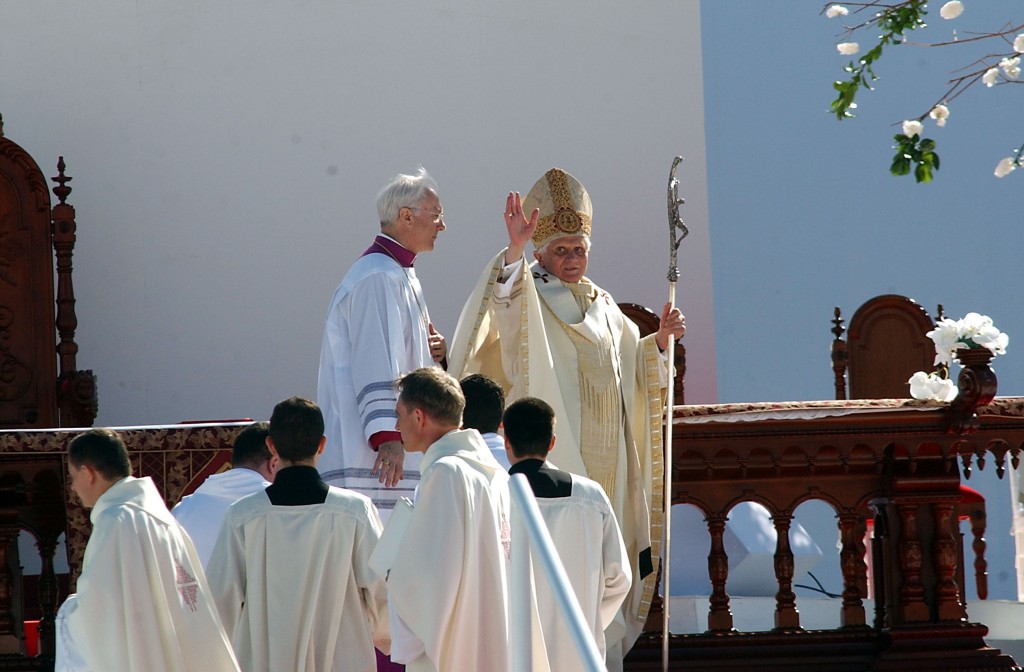Canonization of Frei Galvão Brazilian friar celebrated by Pope Benedict XVI at the Campo de Marte in Sao Paulo, Brazil.
Pope Benedict XVI, the hopelessly out-of-touch leader of the hopelessly out-of-touch Roman Catholic Church announced today that at the end of February, he’ll be leaving his papacy. The 85-year-old cited advancing age, and “diminishing strength” as reasons for the almost unheard of decision to leave the job. Perhaps learning a valuable lesson from his predecessor John Paul II who held the job between 1978 and 2005. John Paul II remained senile and feeble for most of the last decade of his papacy. The position of Pope is, usually, held until the Pontiff’s death.
Benedict is the first pope to quit the since Pope Gregory XII resigned in 1415 in an effort to end the 40-year “Western Schism” that threatened the very power of the Roman Catholic Church, at a time when it’s financial and political sway had reached an all-time peak, nearly a century before the powerful, and ethically suspect Borgia or deMedici families would make Papacy a family business, making scandal and tyranny a hallmark of what the Roman Catholic Church would survive on for the following five decades.
In 2005, when Benedict first donned the papal tiara, there was much speculation around why someone of his advanced years would be elected to the vaunted position, leading skeptics (myself included) to suspect that the Church sought to put someone on the throne of St. Peter who would serve as something of a “stop-gap” until a more suitable candidate could be found and put into power who would help to bring the Church back to its previous popularity and influence. Perhaps such a candidate has been located, and we can look forward to what he might do to make the Church relevant once again.
Pope Benedict’s papacy has been marked, largely, by revelations of countless sexual abuse scandals by Church priests, as well as the institutional suppression of evidence, and evasion of laws to prosecute the offending priests.












